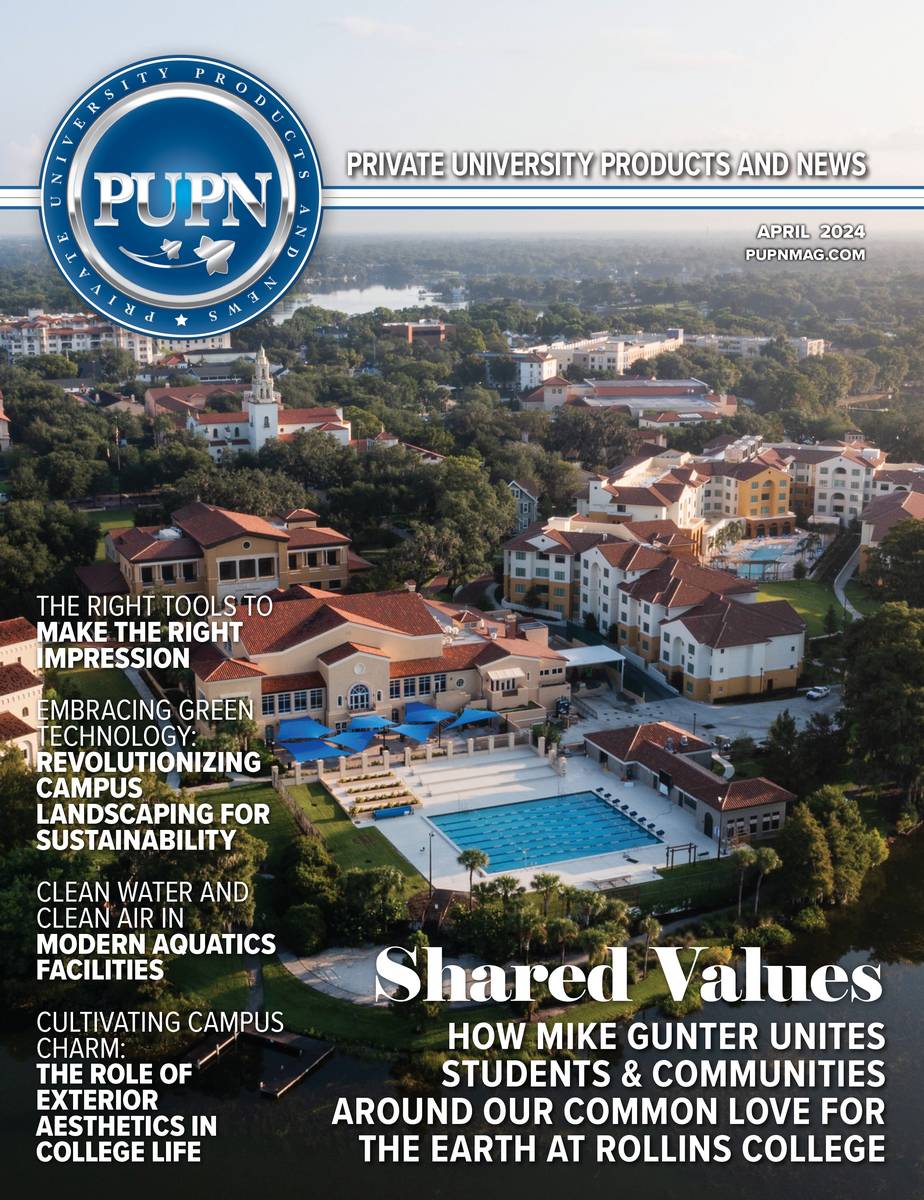Currently, in addition to serving on dissertations in the Interdisciplinary EdD Program in Leadership at Creighton University, she is a Visiting Associate Professor of Information Systems and Decision Science at Park University, where she focuses on engaging students at a mind-body-spirit level by encouraging mindfulness and creating a unique and innovative learning environment.
Evolving From Left-Brain Thinking
Having worked in both computer programming and leadership management roles, Ehrlich quickly noticed one thing: “Computers do exactly what you tell them to-people do not.” She says she was very much a “left brain thinker” originally, and she wanted to engage that other part of her consciousness. When she did, she reaped the benefits of being more fully tapped into both sides of her brain, and she wanted to help create that opportunity for those she teaches.
Because she is passionate about Business Information Systems, she has long been aware that we are constantly working to collect and analyze data. As she often likes to remind her students, “You are thinking every single day and every single minute.” When we are in the act of constantly collecting and organizing that data, though, she recognized how important it is to step away from the data and take another view-to “allow the outcome to emerge.” Her focus then became creating a classroom environment that allowed for the most efficient and meaningful learning. Ehrlich explains, “We are all lifelong learners, as an act of survival.”
Staying Mindful
In her classroom, Ehrlich encourages students to use all of their senses, and she works toward this goal with any tools at her disposal, from essential oils to yoga. “When you come into my classroom,” she tells them, “your whole body is there-not just your brain.” Recognizing that the energy in the room affects the energy in the person, she stresses that students “must be ready and open” and then they can “learn anywhere.” Even when she engages students online, where it is far more challenging to engage students on multiple levels, she looks for ways to engage their senses.
She wants to create a space that prepares students for learning to take place. Her pedagogical approach focuses first on getting students to that “comfortable and safe space” so they are prepared to then push past that narrow comfort zone-helping them become more open to new ideas and to new ways of thinking.
Part of why students all praise her for caring about them as learners and as individuals likely comes from her personal philosophy. She explains, “You see the good in the student and expect the behavior- you convince them to work harder.” Then, those students will spend more time to reach the level she believed they could reach. She has witnessed that students believing in their abilities can lead to amazing results. The instructor/mentor becomes the persona who believes in the students’ value, in their talent, and in their work. She adds, “You become their coach.”
Being a Captain for Students
Jay Hicks first met Ehrlich when she served as his faculty advisor when he started Creighton University’s Interdisciplinary Leadership program several years ago. From the first course with her in Strategic Planning and Management, he was impressed with her interaction in the cohort as well as her thoughtful feedback, so he sought out other courses she was scheduled to teach. After several courses, Hicks realized that Donna was “that” instructor-the one who made the biggest influence on his studies and his future. Hicks notes, “She provided me with such valuable feedback in my writings that it made me become a more thoughtful person – not just in my writing but life in general.”
As Hicks finds himself nearing the end of his dissertation, he notes that he’s not sure he could have finished the journey if she weren’t his “captain,” because on days that self-doubt creeps in, Ehrlich constantly reminds him to view the bigger picture. Hicks notes that Ehrlich offers constant reminders to “be mindful,” and as a result he notes, “I find myself often opening my mouth and Donna’s words come out.” Like Ehrlich, he recognizes that life is constantly offering learning experiences once we “open our hearts and minds to that possibility.” He also believes her approach to mindfulness in the classroom and her mind-body-spirit approach have been a distinct benefit in the way he approaches his dissertation.
When Hicks finds himself caught in the desire to produce a perfect work, she reminds him that “perfection is not the end goal-it doesn’t exist nor is it the point.” She coaches him through writer’s block by encouraging him to take long walks and regular breaks and reminding him the entire committee isn’t there to block him but to improve him. In addition to Ehrlich’s constant presence as a mentor or coach, Hick’s notes as well that she genuinely appears eager to talk about other aspects of his life. He notes, “Her caring is palpable – that’s a true leader.”
Providing Resources to Encourage Critical Thinking
Peggy Hawkins, PhD, RN, CNE, is a retired Professor from Creighton University. Having worked with Ehrlich in several capacities, Hawkins notes that her former colleague “role models excellence for her students” by being exceptionally well prepared and constantly expecting as much from herself as she does from her students. Though she does so in a professional way, of course, Ehrlich also shares her feelings and thoughts on various topics while making it clear students are never expected to parrot those ideas. “She does not ‘give’ answers away,” Hawkins notes, “but rather she asks questions in a way that encourages critical thinking. She provides resources for students to reach beyond the simple answer.”
Hawkins recalls a class they co-taught where she witnessed Ehrlich using powerful reflective thinking exercises to help students become more open-minded to new ideas. That use of reflective thinking continued every week, Hawkins adds, and was used at the course’s end “to provide summative learning.” That reflective thinking was also a form of the mindfulness Ehrlich practices, and the consistent message to engage students’ minds, bodies, and spirits.
Hawkins shares, “Students learn better in a positive environment where they are supported in their critical thinking. The role of the teacher is not to make everyone repeat what the teacher says but rather to be open to multiple viewpoints and to question the status quo. To create a learning environment where students are allowed and encouraged to engage in professional discord helps the entire class to grow. Donna does this consistently.”
The Pedagogical Power of a Diverse Classroom
Park University student Kurbonov Yorkinjon finds Ehrlich exceptional in many ways, from the way she dissects and communicates complex information to the way she offers praise for success and support when students fail to meet the requirements. For those students, her offers to help are not empty gestures; she is there to do the extra work for anyone who needs it. Yorkinjon also appreciates the way Ehrlich keeps the class relevant and interesting by constantly bringing in others’ voices, whether through guest speakers from diverse backgrounds or encouraging students to bring in new ideas gathered from their own outside research.
Dustin Woods, another Park University student, believes part of Ehrlich’s success as an educator is found in her diverse background, as she has worked for large corporations and could bring anecdotes from “real life stories” that related to the material she was covering. Woods shares, “It was always a pleasure to be in her classes because we literally had students from all over the world in her class and she could get everyone to come together in a great conversation and then focus on the positive aspects that we all brought to the table to relate things for discussion and issues that needed to be reviewed.”
As a student, Woods saw that Ehrlich managed to engage everyone in the class by approaching their opportunities to connect in many ways: from direct communication in the classroom, to engaging students in chat during the week, and keeping an ongoing conversation about papers and projects throughout the semester. Woods notes, “She doesn’t lecture; she teaches.” Rather than offering information for students to record and repeat, Ehrlich asks questions and insists students can learn from each other as well, particularly when lucky enough to be in a classroom where many cultures and nationalities are represented. He adds, “Most of the students I had class with in Donna’s class were from Europe, Africa, Asia, Russia, small islands you will never go to in your entire life and Donna gets it. She teaches to everyone and helps them at whatever level they are on.”
In addition to her talents as an educator, Woods believes Ehrlich is a pleasure to be around by constantly smiling, always looking for the fun in a situation, and demonstrating constantly how much she cares about her students and the Park community. While Woods has experienced classes before where educators sit in a chair and basically read something from a screen, he has found all classroom experiences with Ehrlich to be the opposite. Along with starting every class spending time checking in with students, Ehrlich constantly relates academic topics to her own family and to students’ families-to real-life events that are connected to the material thematically. When Ehrlich leads a classroom, Woods says her vitality and energy are contagious.
A Classroom at Once Structured and Organic
Ehrlich is also praised by colleagues and students alike for creating a learning environment that feels both directed and natural. She won’t allow conversations to drift off course from a task, but she’s always pulling in divergent voices and differing opinions, making sure all viewpoints are expressed and that students are learning as much from each other as they can absorb.
Jayson Boyers, President and CEO of Cleary University, explains that Ehrlich is gifted at “creating both the structure and the space where learning occurs,” in that she walks students through difficult concepts by first creating a framework so students can grasp the material and then allowing students to explore that concept from all angles in a natural way. Once students are comfortable with the material, she immediately encourages considering the issue from a completely different angle-or “doing a 180” in perspective-by crafting a “moment of pause” to intentionally and thoroughly question everything in an act of purposeful and directed reflection. In short, she helps students work through complex material in a way that is both “structured and organic.”
Criticism that Motivates, Not Deflates
In addition to the natural yet directed way class-time unfolds, her students repeatedly praise the way she delivers academic critiques to them, even when they have fallen far below the standard they needed to hit. Peter Gabriel has taken several classes with Ehrlich, and she is currently sitting on his dissertation committee. Gabriel explains that Ehrlich can deliver tough criticism in a way that makes the student “feel motivated, not deflated.”
Seeing Ehrlich’s take on constructive criticism as always coming from an optimistic and encouraging place, Gabriel believes the power of her positive approach is that it’s simply a part of her nature-what he calls “her glow”-in that she innately approaches any task from a “view of positivity” which informs any of her interactions with students, whether in the classroom or serving as a mentor and advisor outside of the classroom. Aside from her constant optimism, Gabriel adds, she is extraordinarily passionate about all of her efforts in the classroom and beyond. Whether she is holding a yoga class in front of a building on the Park University campus or meeting with students one-on-one, she is always hyper-aware and connected to the moment. He adds, “Even in her quiet moments, that passion is idling beneath the surface.”










